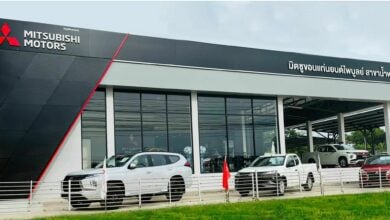Are hybrid vehicles the smart choice for Thailand’s future mobility

In Thailand, the discussion surrounding hybrid vehicles is intensifying with each passing day. There’s widespread acknowledgement of their potential benefits: enhanced environmental friendliness, reduced fuel expenditure, and a representation of the future in automotive technology. However, the question remains whether hybrid vehicles genuinely represent the optimal choice for Thai motorists. It is imperative to scrutinize both the facts and misconceptions about these environmentally conscious vehicles.
Hybrid vehicles leverage a dual system comprising a petrol engine and an electric motor, aiming to provide a more eco-friendly alternative to conventional automobiles. Given Thailand’s dynamic blend of densely populated urban areas and extensive scenic routes, hybrids undoubtedly have significant appeal. Yet, beyond their environmentally friendly reputation, it is crucial to examine their actual benefits for drivers in Thailand.
To ascertain if hybrid cars are indeed superior within the Thai context, it is essential to evaluate their performance under local driving conditions, their financial implications for owners, and their ecological advantages. This analysis will uncover the true merits of operating a hybrid vehicle in Thailand and determine if they truly fulfil the expectations set by current narratives.
Overview of hybrid cars in Thailand
In the domain of automotive advancements in Thailand, hybrid vehicles have become a significant area of focus. These cars, combining petrol engines with electric motors, lead in both technological progress and environmental conservation. Assessing if hybrid vehicles are the best option in Thailand is complex and requires thorough examination.
Hybrid vehicles are posited as a more ecologically sustainable alternative compared to traditional cars. They emit lower levels of pollutants, thereby playing a significant role in reducing urban air pollution—a pressing concern in Thailand’s heavily populated urban areas. The environmental advantages, coupled with potential savings on fuel costs, make hybrid vehicles an appealing proposition. Nonetheless, it is essential to evaluate these benefits within the unique context of Thailand.
The Government of Thailand has instituted fiscal incentives designed to make hybrid vehicles more attainable for the general populace. Such initiatives include diminished taxation rates and subsidies aimed at encouraging a shift towards environmentally friendly automotive options. These efforts are indicative of a broader dedication to reducing the nation’s carbon emissions and fostering a market for clean transportation alternatives.
However, the debate concerning the superiority of hybrid automobiles in Thailand extends beyond environmental and economic factors to include practical considerations. Considering Thailand’s varied geography—which includes both urban environments and challenging terrains—hybrids must prove their effectiveness and reliability under diverse conditions. They must meet consumer demands for efficiency without compromising on power or driving experience.
The integration of hybrid technology into Thailand’s automotive industry necessitates detailed deliberations that account for environmental implications, economic effects, and practical viability. As Thailand progresses, hybrids represent the country’s advanced approach toward green technology and commitment to sustainable living practices. This progression is accompanied by challenges and opportunities that warrant meticulous scrutiny.
Environmental impact of hybrid cars


In response to the question, “Do hybrid cars offer genuine benefits in Thailand?”, it is crucial to engage in a thorough assessment of their environmental implications. Hybrid vehicles have become a pivotal subject in discussions about sustainable transportation options. This examination delves into the contribution of these vehicles towards establishing a more sustainable path for Thailand’s transport sector.
Reduction in emissions
Hybrids stand out for their ability to curb emissions. Unlike traditional internal combustion engine vehicles (ICEVs), hybrids pair an engine with one or more electric motors. This dual power source means hybrids can switch between or combine power sources, optimising fuel efficiency and reducing emissions. Data underscores their potential; hybrids emit significantly less CO2 and pollutants like nitrogen oxides and particulate matter compared to their ICEV counterparts. This reduction is vital in urban areas like Bangkok, where air quality often reaches unhealthy levels. By choosing a hybrid, you’re contributing to a cleaner atmosphere.
Conservation of natural resources
Another dimension in which hybrid vehicles excel is their contribution to the conservation of natural resources. The integration of electric propulsion with a conventional fuel engine results in diminished fuel consumption. This efficiency entails a decreased dependence on petroleum, a finite non-renewable resource that is not only scarce but also subject to fluctuating prices driven by geopolitical tensions and extraction costs. Furthermore, hybrids facilitate the transition towards fully electric vehicles (EVs) by familiarizing drivers with charging routines and partially electric operation, thereby preserving energy resources.
In light of global concerns regarding the depletion of fossil fuels and the environmental repercussions of their extraction and refinement, this aspect assumes greater significance. It transcends mere savings at the pump it embodies a deliberate decision for environmental stewardship and intergenerational responsibility. Hybrid automobiles, through their lower fuel consumption and diminished emissions, emerge as pivotal elements in advancing towards a more sustainable and resource-efficient automotive landscape in Thailand.
Cost-effectiveness of hybrid cars in Thailand

Long-term financial benefits of hybrid cars
Inquiring whether hybrid vehicles confer a superior advantage in Thailand necessitates an evaluation centred on cost-effectiveness. While the initial acquisition cost of hybrid cars may appear considerable, a detailed analysis reveals the potential for long-term financial benefits. Hybrid vehicles in Thailand are characterized by their lower fuel consumption and diminished emissions, factors that significantly influence their total ownership and operational expenses.
The reduction in fuel expenditure stands as a paramount benefit. Hybrid technology employs a dual system of petrol and electric power, resulting in decreased fuel consumption when juxtaposed with traditional vehicles. Given the volatility of fuel prices in Thailand, the choice of a hybrid vehicle can culminate in notable savings over an extended period. It is imperative to look beyond the immediate purchase cost to fully appreciate the cumulative financial savings.
Government incentives enhance cost-effectiveness
Thai government extends incentives for hybrid vehicles as part of its initiative to promote environmentally sustainable transportation methods. These incentives may manifest as tax deductions or rebates, thereby enhancing the affordability of hybrid cars for consumers. Such governmental support not only facilitates savings on operational costs but also potentially offers more favourable initial purchasing conditions.
Reduced maintenance cost of hybrid cars
Maintenance expenditures further contribute to the overall cost-efficiency analysis of hybrids versus conventional vehicles. Hybrids typically feature fewer mechanical components than their traditional counterparts, potentially leading to reduced maintenance costs over time. The electric motor within a hybrid incurs less wear and tear compared to standard petrol engines, which translates into less frequent servicing requirements—thereby saving owners both time and financial resources.
Buying a car in Thailand as a beginner can be a straightforward process with the right preparation and understanding of the local regulations. By researching thoroughly, budgeting wisely, and considering both new and used options, you can make an informed decision that best suits your needs. Remember, patience and diligence are your best allies in navigating the car-buying journey in Thailand. Welcome to the road, and enjoy the drive!


































